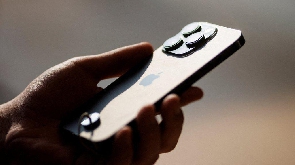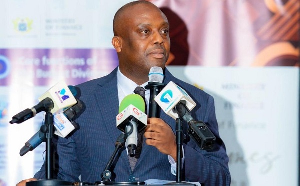As I dey write so, we still get few hours before Apple go lunch di latest version of dia best-selling product, di iPhone.
For di last few weeks we don see di handset come under pressure separately from both EU and China.
Globally, smartphone sales in general dey drop, and Apple virtual reality headset - wey di company dey package as potential future iPhone - no go, go on sale until next year.
Wen e enta market e go cost $3,500 (£2,780) and di equivalent amount for Nigeria currency naira na ₦2,749,220.022.
And so, for di meantime, we go meet di 16th generation of one device wey don change di smartphone market forever since dem launch am for 2007.
Already na almost five billion Google search results don dey for "iPhone 15", dis na even without official previews from Apple sef.
If you look well and start to read di speculation and "leaks" wey dey fly around, you go see say di iPhone 15 models go likely dey a little lighter than di old ones, wit improved chip, better battery life, better camera and titanium chassis.
You fit feel say I bin write something close to dis, dis time last year, or di year before dat. Most likely na true.
Apple handset generations
Apple handset generations, like most devices, di phone feature dey improve most of di time.Na one of di issues wey dey cause di slow sales worldwide. Pipo dey hold on to dia devices longer – no be only because of say dem dey expensive both financially and environmentally - but also because dat ginger to upgrade no dey like e bin dey before.
"I feel say Apple probably realise say dem don reach a point wia becos of di high number of iPhones wey dey ground just to maintain those volumes alone na ogbonge achievement," na so Ben Wood, one smartphone expert for di analysts CCS Insight tell me.
Im agree say we fit no see big difference for di iPhone wey dem go unveil on stage for Apple annual September event for US dis evening, wetin we go see na theatre of a wealthy company wey sabi perform for dia fan club.
Aside dat, e get one physical development you neva see before, and if you dey Europe, you go certainly notice am. Di iPhone 15 go almost certainly get a USB-C charging cable point.
Currently iPhones dey rely on one proprietary lightning cable, while most oda devices - including oda Apple make - tend to use USB-C. Di important physical difference na say di two get different shapes.
'iPhones dey enta pipo hands wey bin no fit afford am before'
So if, for example, you get an iPhone and one Kindle, your iPhone charger no go fit in for di port for your Kindle and vice versa.
Apple insist say to change products dey always lead to greater innovation. E also push wireless charging as an alternative for several years – all dia handsets since di iPhone 8 dey compatible.
But, EU no like di move, dat na why dem declare say all portable devices need to dey compatible wit a universal charger by December 2024. And di rest of di consumer tech sector neva ready to convert to lightning, even if Apple dey allowed to.
But you fit dey justified to add dat cable to your cable drawer (you know di one) instead to troway am - Ben Wood say di market for second hand iPhones dey boom, especially for Africa.
"iPhones dey enta pipo hands wey bin no fit afford am before … and e don lock dem put inside Apple ecosystem," e tok.
EU no be di only territory wey dey put new law. Last week China reportedly ban iPhone from state-run buildings (as you fit imagine, dem plenty) dem say na on security grounds.
Dis get to do wit di phone itself and more to do wit di ongoing tech wahala between China and US - but it cause Apple share price to shake. Majority of pipo for China dey use Android devices, but iPhone na di best-selling premium brand (by dat I mean top-dollar) handset.
Dis mata dey one kind for Apple sake of say dem still dey make products dia. Dem don dey try to move away - iPhone 14 na India dem assemble, for example - but dem still need Chinese-based companies and factories.
Apple still need China then. But how much wey di rest of us need - or want – di new iPhone? We dey about to find out.
















